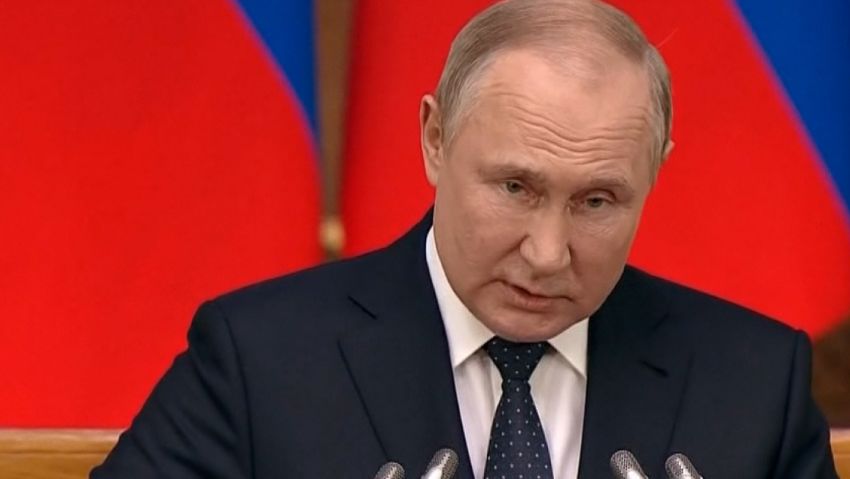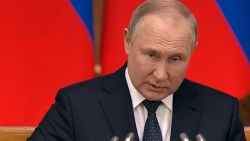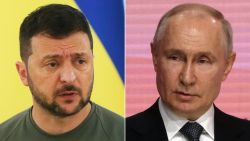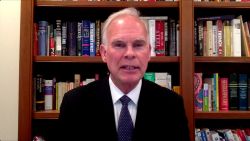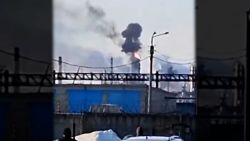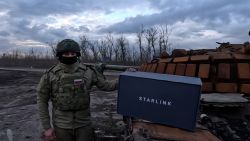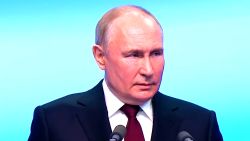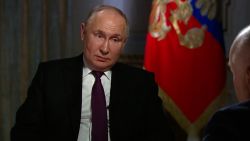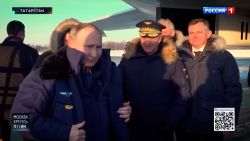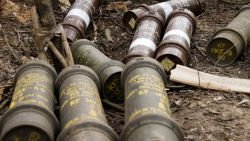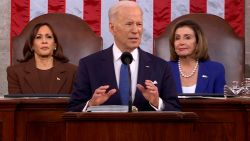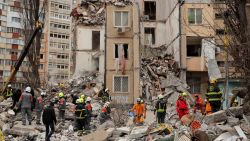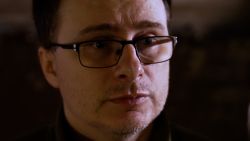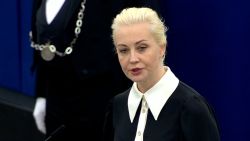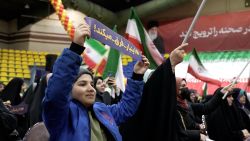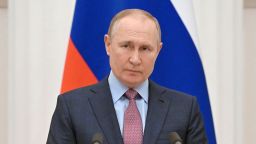Editor’s Note: Michael Christ is executive director of the International Physicians for the Prevention of Nuclear War, the recipient of the 1985 Nobel Peace Prize. Dr. Ira Helfand is the immediate past president of the organization. The opinions expressed in this commentary are their own. View more opinion at CNN.
After Russian President Vladimir Putin put his country’s nuclear forces on high alert on February 27, UN Secretary-General António Guterres said, “The prospect of nuclear conflict, once unthinkable, is now back within the realm of possibility.” Recent statements by government officials and pundits, both in Russia and the United States, have made it clear that while nuclear war should be unthinkable, they are indeed thinking about it … a lot.
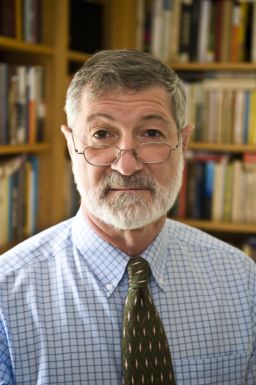
French Foreign Minister Jean-Yves Le Drian countered with a threat of his own, saying, “Putin must also understand that the Atlantic alliance is a nuclear alliance.”
Last week, Putin issued the latest in a series of nuclear threats when he warned of a “lightning-fast” response if any nation intervened in Ukraine.

While the United States hasn’t put its forces on higher alert, the Biden administration has adopted a more confrontational stance toward Russia in recent weeks.
The Pentagon response appears to be an “extra urgency in developing a new generation of doomsday weapons that could maintain deterrence,” according to David Ignatius in The Washington Post. And a headline for a Wall Street Journal column argued, “The US Should Show It Can Win a Nuclear War.”
What are they thinking? If there’s one thing we know about such a conflict, it is as President Ronald Reagan and Soviet leader Mikhail Gorbachev said in a joint statement in 1985, “(A) nuclear war cannot be won and must never be fought.”
The US and Russia currently have some 3,000 strategic nuclear warheads pointed at each other, according to the Federation of American Scientists. A 2002 study showed that if only 300 Russian warheads got through to cities in the United States, 77 million to 105 million people would be killed in the first afternoon.
In addition, the economic infrastructure of the United States would be gone. There would be no electric grid, internet, food distribution system, banking or public health system, or transportation network. In the months following, most of those who survived the initial attack would also die – from starvation, exposure, disease and radiation poisoning, the same study found. A US attack on Russia would produce the same destruction there, it said.
And the fires caused by these combined attacks would put millions of tons of soot into the upper atmosphere, blocking out the sun and dropping temperatures across the globe to levels not seen since the last ice age. Food production would crash, triggering a global famine that would destroy modern civilization, according to a study published in the journal Science Advances.
It is hard to understand by what definition anyone could win such a war.
Throughout most of human history, having more powerful weapons than potential adversaries did make people feel stronger and more secure. But the destructive power of nuclear weapons is so great, that increased strength no longer translates into increased security. We may be able to destroy our enemy, but it can destroy us, too. We have armed ourselves with suicide bombs.
This capacity for mutually assured destruction was supposed to guarantee that no leader would ever use nuclear weapons. But as former US Defense Secretary Robert McNamara warned, we have not survived this far into the nuclear weapons era because of wise leaders, sound military doctrine or infallible technology. “We lucked out. It was luck that prevented nuclear war,” McNamara said in the 2003 documentary, “The Fog of War.”
The war in Ukraine is a terrifying reminder of how much our survival now depends on continued good luck. For the first time in more than three decades, the major nuclear powers have brought the world to the brink of nuclear catastrophe.
In March, 18 Nobel Peace laureates joined in a statement demanding that Russia and NATO pledge explicitly that they will not use nuclear weapons in the current conflict. More than 1 million people signed on in support of this statement. So far, neither Russia nor NATO has been willing to make such a pledge. They need to make this commitment now.
Get our free weekly newsletter
And all the nuclear armed states need to understand that nuclear weapons, far from being instruments of national security, are the greatest threat to security. The nine nuclear nations must no longer hold their own people and all of humanity hostage. If we are to survive, they must come together and negotiate a verifiable, enforceable timetable to eliminate their nuclear arsenals so they can all join the UN Treaty on the Prohibition of Nuclear Weapons. Sooner or later, our luck will run out.
In the 1983 movie “WarGames,” the supercomputer Joshua tries to win a simulation of a nuclear war and comes to a startling conclusion: “A strange game. The only winning move is not to play.” Joshua was right. Let’s stop playing games with human survival and get rid of these weapons before they get rid of us.
